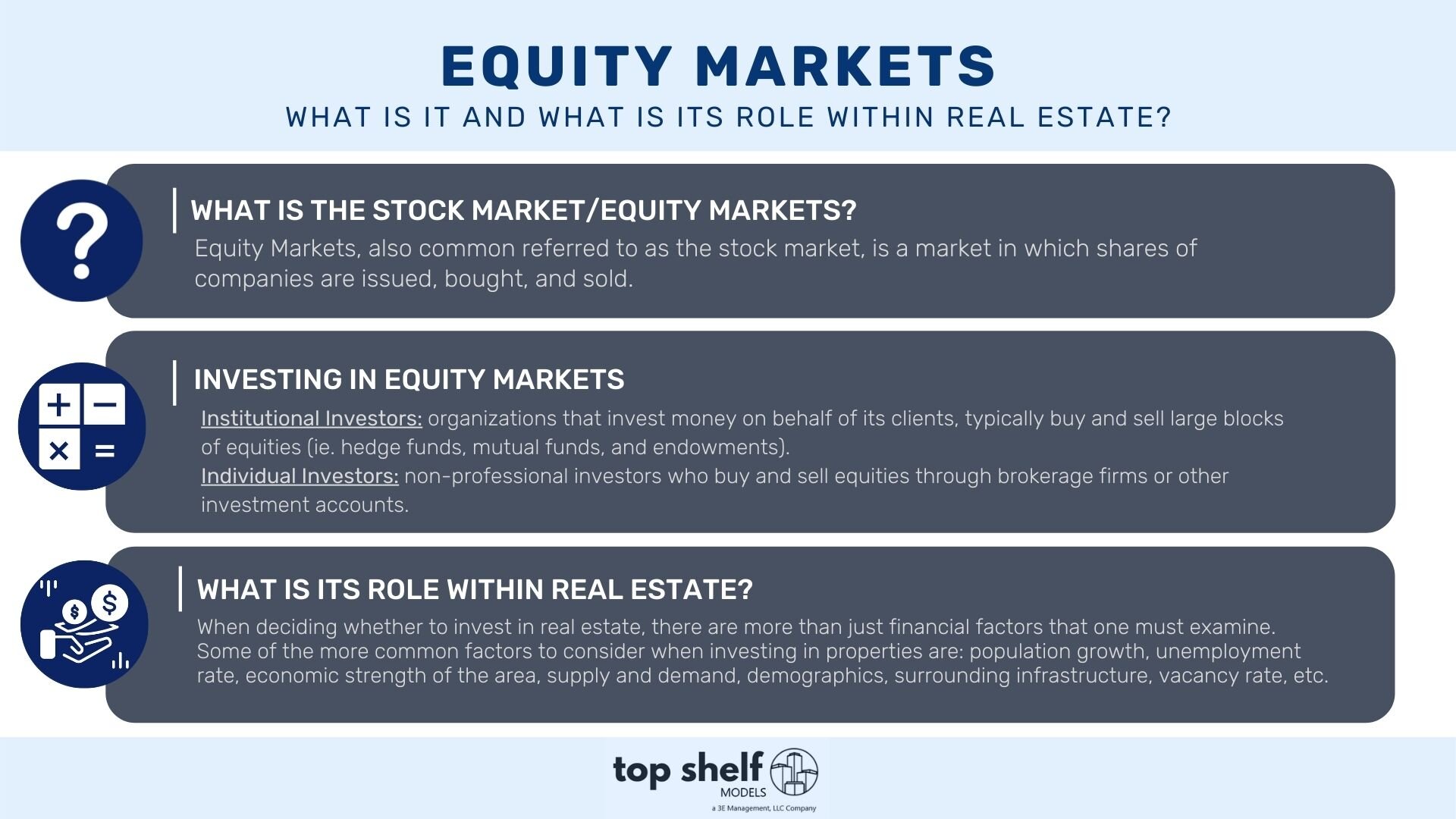What are Equity Markets?
Equity Markets, also common referred to as the stock market, is a market in which shares of companies are issued, bought, and sold. Equity markets facilitate the exchange of shares between both institutional and individual investors, and can be executed through multiple exchange platforms.
For publicly-traded companies, the most common exchange platforms are the New York Stock Exchange, Nasdaq, Tokyo Stock Exchange, Shanghai Stock Exchange, and Euronext Europe. In these markets, sellers set ask prices for the shares and buyers bid for such shares. When these two numbers are the same, the trade is approved and a sale occurs. These exchanges are some of the largest equity markets in the world, and facilitate thousands of trades per day.
For private companies that issue stock to employees, the stock can only be traded through an Over-The-Counter (OTC) market. An OTC market is a market in which shares, commodities, or currencies are directly exchanged between two parties.




